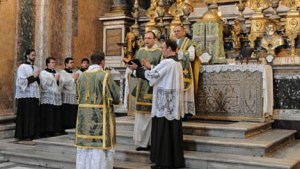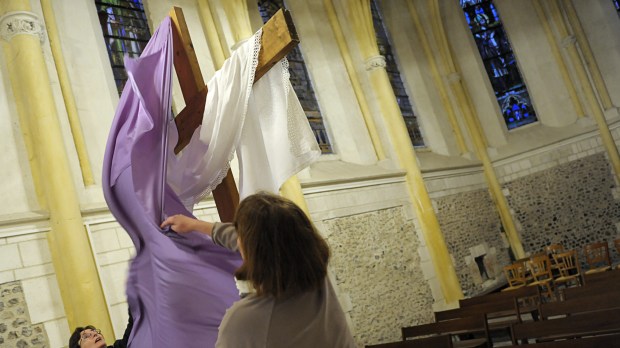In addition to Lent, which begins 40 days before Easter, Catholics traditionally observed a “pre-Lenten” season that begins with what’s called Septuagesima.
This liturgical tradition is named for the Latin word meaning “70th” (as in 70 days before Easter), and it begins on the ninth Sunday before Easter. It is classified as a “pre-Lenten” season and is included in the Easter Cycle in the liturgical calendar used by the Traditional Latin Mass and Ordinariate communities.
The seasonal practice dates back at least to the 8th century, and is celebrated on the three Sundays that precede the beginning of Lent. These Sundays are named Septuagesima, Sexagesima, and Quinquagesima, from the Latin for the 70th, 60th, and 50th days before Easter, in the ancient custom of counting a week as 10 days.
According to the medieval devotional classic The Golden Legend, one of the reasons for Septuagesima is to commemorate “the seventy years the children of Israel spent in captivity in Babylon, when they hung up their lyres and said: ‘How shall we sing the Lord’s song in a foreign land?'”
Furthermore, “The time of captivity and exile of the children of Israel also represents the time of our own pilgrimage …”
It is the duty of the soul during this time to “labor in the vineyard of the soul, pruning away vices and sins; in the race of the present life she must run by doing the works of penance; and then she must fight staunchly in the struggle against all the devil’s trials. If she follows this prescription, she will receive a threefold reward, because to the laborer the day’s wages will be given, to the runner the prize, and to the fighter the crown.”
While this special pre-Lenten season is no longer on the general calendar of the Ordinary Form, it should act as a warning signal, alerting us to the coming season of Lent, urging us to prepare our hearts for this great season of the Church’s liturgical year.
In this world we still remain in spiritual exile, and Lent calls us to put forth all of our energy to return to God with all of our hearts.

Read more:
Here’s why some Christians observe 70 days of Lent

Read more:
What does the word “Lent” mean?

